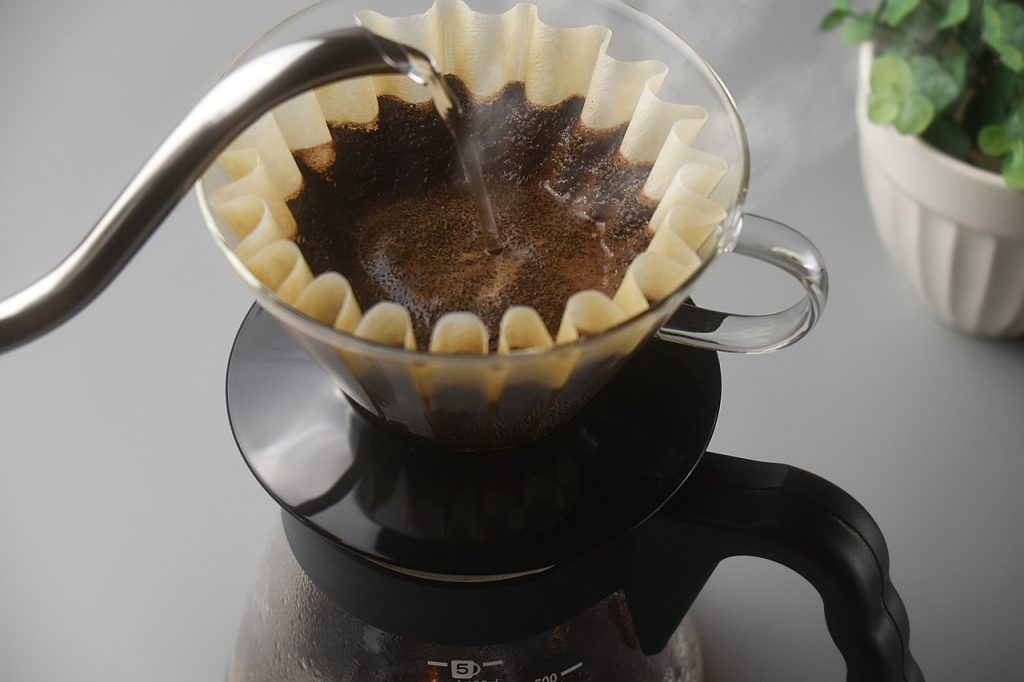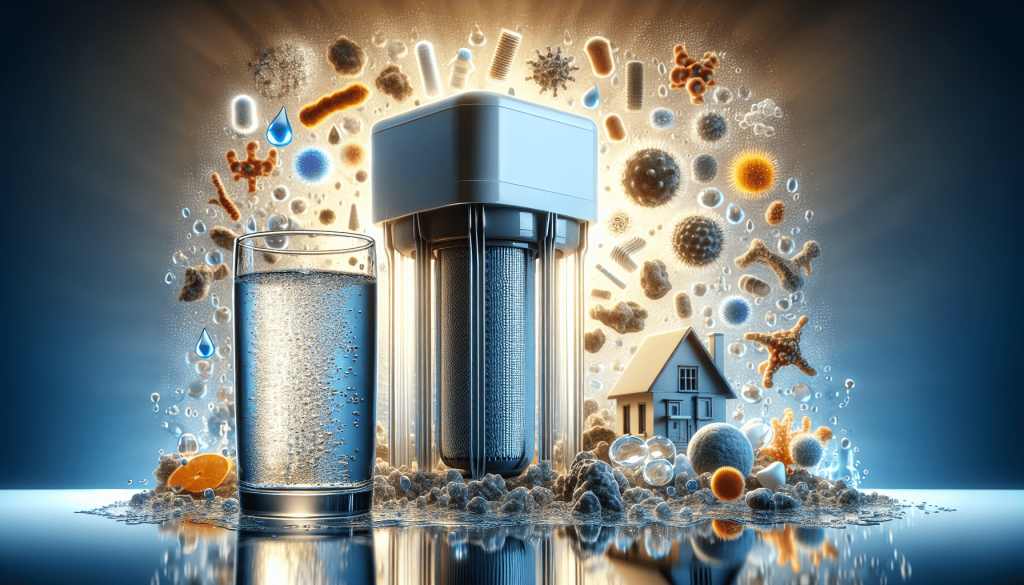Imagine never having to worry about the quality of the water you drink straight from your tap. With a whole house filter system, this dream can become a reality. But many often wonder if it’s safe to consume filtered tap water. In this article, we will explore the effectiveness of whole house filters in purifying your tap water and whether it’s indeed safe for you to drink. Say goodbye to expensive bottled water and hello to a reliable source of clean and refreshing hydration.
What is a whole house filter?
Definition
A whole house filter is a water filtration system that is installed at the main water line of a house, filtering all of the water that enters the home. It is designed to remove impurities and contaminants, ensuring clean and safe water throughout the entire house.
Purpose and benefits
The main purpose of a whole house filter is to improve the quality of the water you use for various purposes, such as drinking, cooking, bathing, and washing. By removing harmful contaminants, such as chlorine, sediments, heavy metals, and chemicals, it helps protect your health and enhances the overall water quality. Whole house filters also prolong the lifespan of appliances and plumbing by preventing the build-up of sediments and mineral deposits.
How it works
A whole house filter typically consists of multiple stages of filtration. The water flows through various filter media, such as activated carbon, sediment filters, and sometimes even additional media like KDF (Kinetic Degradation Fluxion) or UV filters. These media effectively trap and remove different types of contaminants. The water enters the system from the main water line, passes through the filtration stages, and then flows out to supply clean water throughout the house.
Can you drink tap water with a whole house filter?
Effectiveness of whole house filters
Whole house filters are highly effective at removing a wide range of contaminants commonly found in tap water. They can eliminate chlorine, sediment, rust, pesticides, herbicides, and even some bacteria and viruses. However, it is important to note that the specific effectiveness may vary depending on the type and quality of the filter used.
Removal of contaminants
A properly installed and maintained whole house filter can significantly reduce or eliminate contaminants that may affect the taste, odor, and overall quality of tap water. This includes common pollutants like lead, chlorine, volatile organic compounds (VOCs), and various sediment particles. The filtration process enhances the safety and purity of your drinking water.
Maintaining water quality
With a whole house filter, you can enjoy high-quality tap water not only for drinking but also for other household uses, such as cooking and bathing. Filtering all the water that enters your home ensures that every faucet and appliance receives clean and safe water, providing peace of mind for you and your family.

Considerations before drinking tap water with whole house filter
Water source and quality
While a whole house filter can greatly improve the quality of tap water, the initial source and quality of your water supply are important factors to consider as well. If your water source is known to have severe contamination issues, it may be necessary to complement the whole house filter with additional filtration methods to ensure the highest level of safety.
Type of filter used
Different whole house filters have varying filtration capabilities. Some are better at removing specific contaminants, while others provide a broader spectrum of filtration. It is important to choose a filter that suits your specific water quality needs. Consulting with a water filtration professional can help you select the most appropriate system for your home.
Proper maintenance
To continue enjoying clean and safe tap water, regular maintenance of the whole house filter is essential. This may include periodic filter replacement or cleaning, depending on the type of filter system you have installed. Neglecting proper maintenance can diminish the filter’s effectiveness and potentially lead to water quality issues.
Advantages of drinking tap water with whole house filter
Cost-effectiveness
One of the significant advantages of drinking tap water with a whole house filter is the cost savings it can provide. Purchasing bottled water or individual filtration systems for every faucet can quickly become expensive. With a whole house filter, you have access to clean drinking water throughout your entire home without the ongoing expense of bottled water or multiple filters.
Convenience
Having a whole house filter means you don’t have to worry about filling up and maintaining separate water filters or pitchers in different rooms. The convenience of having clean drinking water readily available at any faucet or shower in your home makes it a desirable option for many households.
Reduced plastic waste
Drinking tap water with a whole house filter helps reduce plastic waste by eliminating the need to purchase and dispose of single-use plastic water bottles. By choosing a sustainable and eco-friendly alternative, you can contribute to conservation efforts and promote a greener lifestyle.

Disadvantages of drinking tap water with whole house filter
Initial cost of installation
The initial cost of installing a whole house filter can be relatively high, particularly for high-quality systems with advanced filtration capabilities. However, it is important to consider it as a long-term investment in your health and the quality of your water. Additionally, the cost of maintenance and occasional filter replacements should also be taken into account.
Limited filtration capabilities
While whole house filters are effective at removing a wide range of contaminants, they may not eliminate all types of water impurities. Certain contaminants, such as some heavy metals or specific chemicals, may require additional filtration methods to achieve the highest level of purity. Consequently, it is important to assess your water quality needs and consider supplemental filtration if necessary.
Potential for system failure
As with any filtration system, there is always a possibility of system failure. Although rare, it is crucial to address any malfunctions or issues promptly to prevent compromised water quality. Regular inspections and maintenance can help mitigate the risk of system failure and ensure the continued effectiveness of the whole house filter.
Tips for ensuring safe drinking water with whole house filter
Regular filter replacement
To maintain optimal performance and water quality, it is important to follow the manufacturer’s guidelines and replace the filters on a regular basis. Failure to do so can result in reduced filtration efficiency and potentially compromise the cleanliness of the water.
Regular water testing
Periodically testing your tap water can provide valuable insights into its quality and identify any potential issues that may require further action. Local water testing laboratories or water filtration professionals can perform comprehensive tests, checking for contaminants and verifying the effectiveness of your whole house filter.
Additional filtration methods
Depending on your specific water quality concerns, you may consider implementing additional filtration methods in conjunction with your whole house filter. This could include point-of-use filters, water ionizers, or reverse osmosis (RO) systems. By customizing your filtration approach, you can address any unique needs and achieve the desired level of water purity.

Alternatives to whole house filters
Filtered water pitchers
Filtered water pitchers offer a convenient and affordable solution for providing clean drinking water. These pitchers typically use activated carbon filters to remove impurities and improve the taste of tap water. However, they have a limited capacity and require frequent filter replacements.
Under-the-sink filters
Under-the-sink filters are installed directly beneath the kitchen sink and provide filtered water at a designated faucet. These systems generally offer more advanced filtration capabilities than pitcher filters, targeting a broader range of contaminants. Installation may require professional assistance.
Point-of-use filters
Point-of-use filters are individual filters that can be attached directly to a specific faucet, providing filtered water only at that location. These filters are often used in conjunction with other filtration systems, such as whole house filters, to address specific needs or further enhance water quality.
Conclusion
Balancing convenience and water quality is a personal choice, shaped by individual preferences and circumstances. While a whole house filter offers numerous benefits, such as improved water quality throughout your home and reduced plastic waste, it is essential to consider factors such as the initial cost, maintenance requirements, and specific water quality needs. By understanding your options and taking the necessary precautions, you can make an informed decision and enjoy the benefits of clean, safe tap water with a whole house filter.



